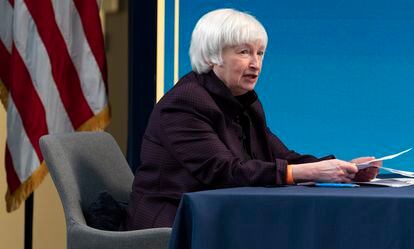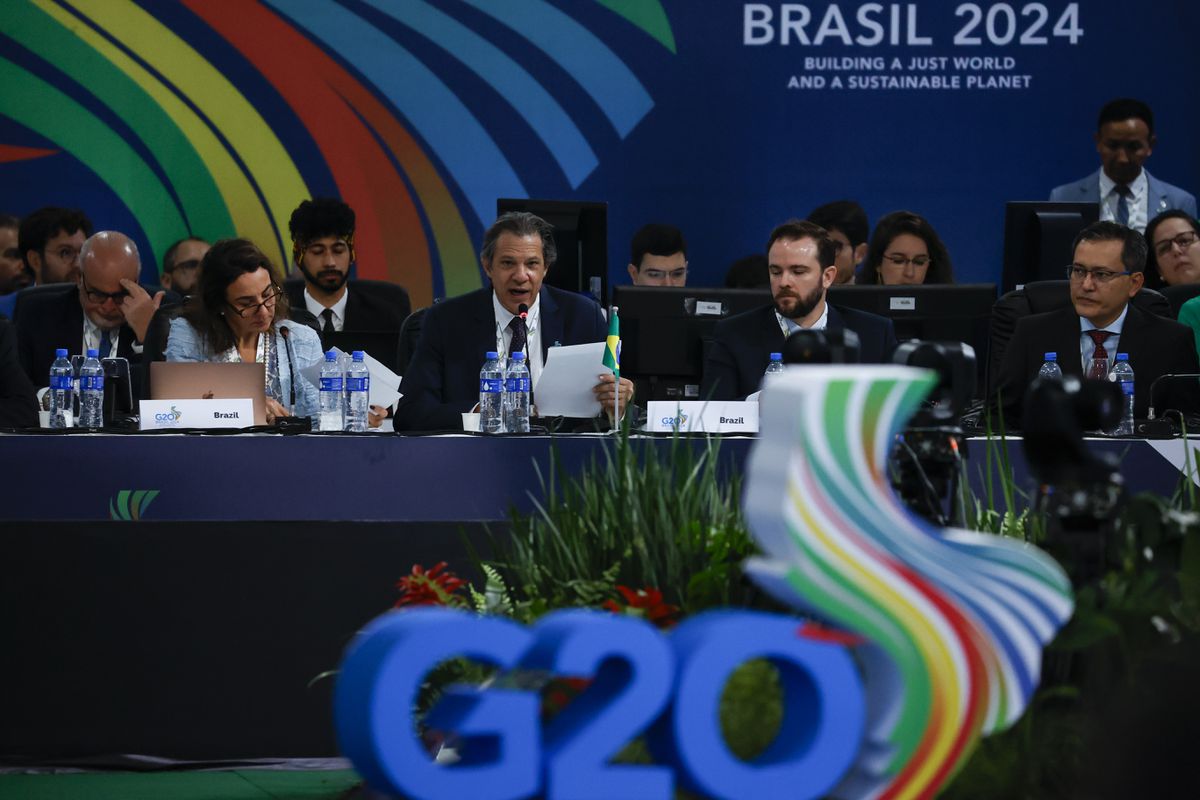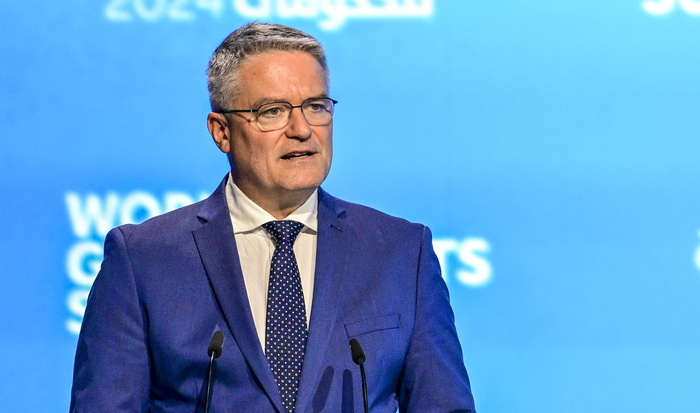US Treasury Secretary Janet Yellen in February Jacquelyn Martin / AP
The Secretary of the Treasury of the United States, Janet Yellen, announced this Monday her intention to work with the G20 countries to implement a minimum corporate tax on a global scale for multinationals, one of the proposals on which the Organization has been working for some time. for Economic Cooperation and Development (OECD).
The objective is that the tax favors "stable and fair tax systems" and stops the race to the bottom that this tax is suffering.
Yellen has presented his position in his first appearance as head of the US economy before the Council on Global Affairs in Chicago.
Yellen denounced that race to the bottom "of the last 30 years" in a virtual speech.
For this reason, he stressed, it is important to ensure that "governments have stable tax systems that collect sufficient income and that all citizens fairly share the government's financial burden."
At the Chicago forum, Yellen also denounced the isolationism of the former president, Donald Trump, noting that
America First
- the Republican's motto - should never mean "America alone."
The objective of this global rate is to prevent large corporations from settling in jurisdictions with lower taxation and subtracting revenue from the public coffers, even more so given the enormous bill that the crisis caused by the pandemic will leave, which the US intends to mitigate with a ambitious stimulus plan valued at 1.9 trillion dollars, already approved by Congress.
This global minimum rate, Yellen stressed, can be used so that the economy "develops with more equal opportunities" and "stimulates innovation, growth and prosperity."
For the former Fed president, credibility abroad "begins with credibility at home," and that is why she gave as an example the projected rise in corporate tax in the US, an eventual increase that faces a lot of resistance from the business class. .
Last week, Biden presented the details of his infrastructure program, one of the key pieces to rebuild and modernize the economy in the post-pandemic phase, with an investment of two trillion dollars.
Part of this plan, which will have to receive the green light in Congress in a process that is predicted to be stormy but that Democrats hope to be able to close by July 4, will be financed by raising the current 21% corporate tax rate ―before of Trump's tax reform in 2017, it was at 35% - 28%, and setting the minimum rate to be paid by US companies for their profits abroad at 21%.
Last week, in an appearance before the Senate, Yellen had defended the increase of the tax, due to the fact that the country collects "a very small amount" through that fiscal figure.
The Biden Administration lifts Trump's blockade and paves the way to a universal 'Google rate'
The US Treasury secretary had already advanced at the end of February, at a meeting of the G20, her willingness to establish a minimum type of partnerships on a global scale throughout the world.
"It is important to work with other countries to end the pressures of tax competition and the erosion of the tax base by companies," he said this Monday.
Yellen's speech comes a day before the International Monetary Fund (IMF) releases its forecasts for 2021 at its spring assembly, an appointment that this year will be inevitably marked by the expected exit from the pandemic tunnel.
Given that Yellen plans to participate in the joint meeting of the Fund and the World Bank (WB), it is not ruled out that this global initiative could be discussed.
The United States participates in the conversations led by the OECD together with some 140 other countries to reach a global agreement on a minimum corporate tax at the global level.
The OECD has been trying for years to design, in vain, a new system that adjusts to the profound transformation of the economy in recent decades, that is, adapted to increasing digitization and the dominance of large multinationals, especially technology giants. , who are on target for the usual practice of dodging taxes.





/cloudfront-eu-central-1.images.arcpublishing.com/prisa/ZUKHJYNBKFGELIR5I5JL4S2JY4.jpg)


